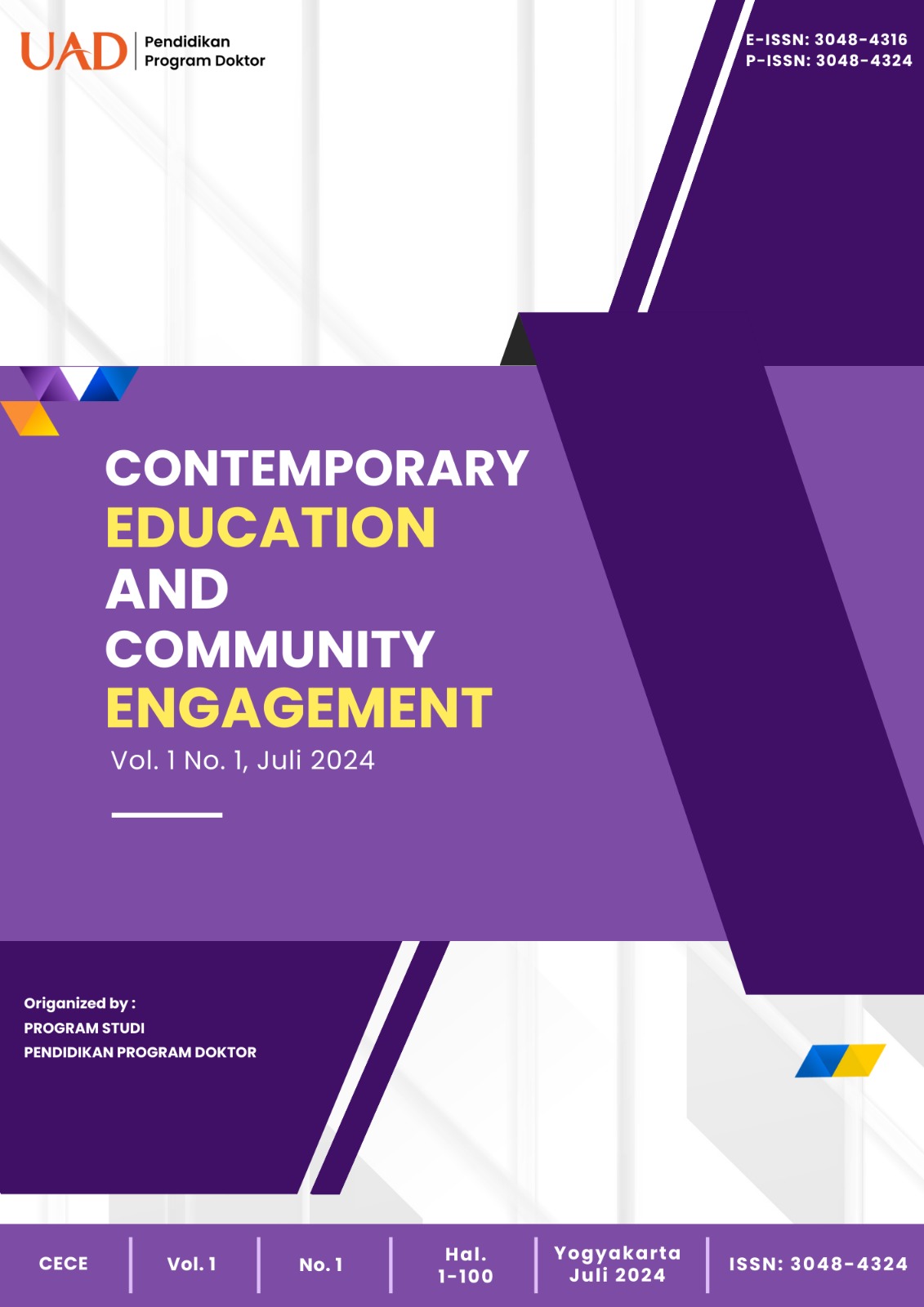The Impact of a Collaborative Problem-based Learning on Performance in Inverse Matrix Learning, Critical Thinking Skills, and Student Anxiety
DOI:
https://doi.org/10.12928/cece.v2i1.1034Keywords:
Problem Based Learning, Learning Achievement, Critical Thinking Skills, Anxiety LevelAbstract
The main aim of this study was to evaluate the efficiency of collaborative Problem-Based Learning (PBL) approaches, whether carried out in group settings or in pairs, by examining student performance in understanding inverse matrix concepts, their proficiency in critical thinking, and their levels of anxiety. Using a quasi-experimental approach with a pretest-post-test non-equivalent comparison-group design, the study focused on students from XI Science classes at Kasihan 1 State High School, with classes XI Science 2 and XI Science 3 selected randomly as samples. Pretest and post-test measures were administered to both groups, evaluating their performance in matrix learning, critical thinking, and anxiety levels. The effectiveness of collaborative PBL was analyzed using independent sample t-tests. Results indicated that collaborative PBL, whether in group or pair formats, led to improvements in students' achievement in inverse matrix learning, critical thinking skills, and a decrease in anxiety levels. Additionally, collaborative group PBL proved to be more effective than collaborative pair PBL across these variables.
Downloads
Published
How to Cite
Issue
Section
License
Copyright (c) 2025 Deny Hadi Siswanto

This work is licensed under a Creative Commons Attribution-ShareAlike 4.0 International License.





